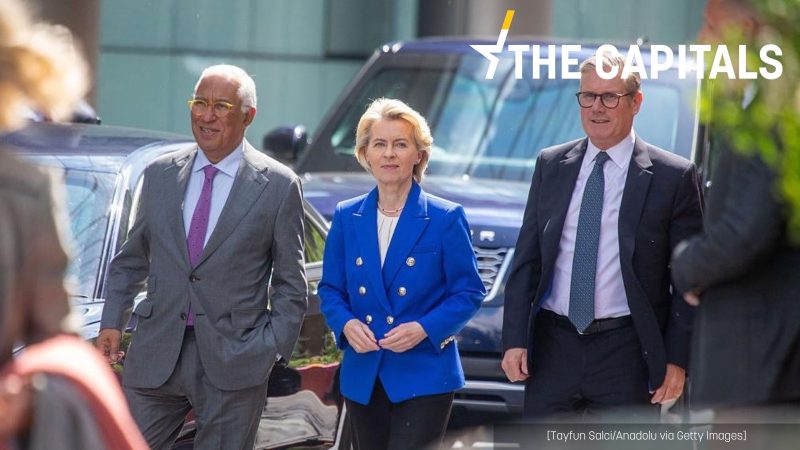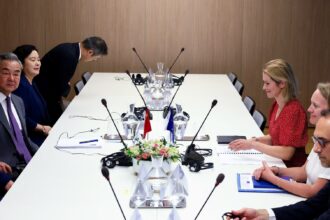In a landmark development that signals a significant warming of post-Brexit relations, the European Union and United Kingdom have finalized a comprehensive defence cooperation agreement while pledging to strengthen collaboration on critical areas including food security and energy resilience.
The new defence pact, announced following intense negotiations between Brussels and London officials, establishes formal mechanisms for joint military planning, intelligence sharing, and coordinated response to emerging security threats. This represents the most substantial security cooperation framework since the UK’s departure from the bloc in 2020.
“This agreement recognizes the shared security challenges facing both the EU and UK in an increasingly unstable global environment,” said European Commission President Ursula von der Leyen at the signing ceremony in Brussels. “It demonstrates that while we may have political differences, our strategic interests remain fundamentally aligned.”
The agreement comes amid growing concerns about Russia’s continued aggression in Ukraine and mounting tensions in the Middle East. UK Prime Minister Rishi Sunak emphasized that the pact would enhance Europe’s collective security posture while preserving Britain’s sovereign defence capabilities.
“Britain’s security has always been inextricably linked to the security of our European neighbors,” Sunak stated. “This agreement allows us to cooperate more effectively while maintaining our independent decision-making capacity on matters of national importance.”
Beyond defence matters, the comprehensive agreement outlines ambitious plans for cooperation on food security and energy transition. Both sides have committed to establishing specialized working groups to address agricultural trade barriers that emerged following Brexit and to coordinate approaches to renewable energy development.
The food security provisions aim to streamline regulatory processes that have complicated agricultural exports since the UK left the EU single market. Meanwhile, energy cooperation focuses on joint investment in North Sea wind projects and shared infrastructure for green hydrogen production.
EU analysts view this development as part of a broader normalization process in EU-UK relations. Dr. Emilia Ferreira, senior research fellow at the CO24 World News think tank, notes that “after years of post-Brexit tension, we’re seeing a gradual recognition on both sides that pragmatic cooperation serves mutual interests, particularly in an era of growing geopolitical competition.”
This renewed collaboration extends to emerging technologies, with commitments to align regulatory approaches to artificial intelligence and enhanced coordination on cybersecurity threats. The agreement also features provisions for UK participation in select EU research programs, reversing previous exclusions following Brexit disputes.
Defence industry representatives have welcomed the deal, anticipating increased opportunities for cross-Channel projects. “This agreement creates a framework for joint capability development that could benefit manufacturers and enhance interoperability between UK and EU forces,” said Martin Reynolds, CEO of the European Defence Industries Association.
However, challenges remain in fully implementing the ambitious cooperation agenda. Political tensions continue over the Northern Ireland Protocol and fishing rights disputes. Opposition figures in the UK have questioned whether the agreement goes far enough in restoring previously abandoned security frameworks.
Both sides acknowledge that rebuilding trust will take time. European Council President Charles Michel characterized the agreement as “an important first step in a renewed partnership based on shared values and pragmatic cooperation,” while cautioning that “much work remains to fully restore the relationship.”
As Europe confronts mounting security challenges from an increasingly assertive Russia and economic pressures from global supply chain disruptions, will this pragmatic reset in EU-UK relations prove durable enough to overcome the political divisions that have defined the post-Brexit landscape?

























